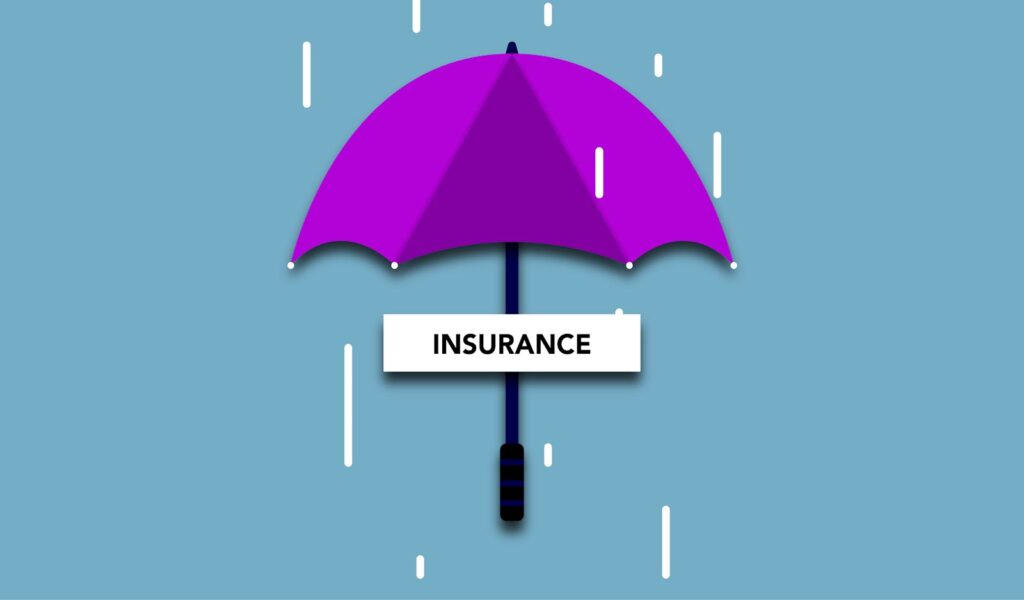It covers protection from natural disasters and theft, but the premiums just seem to keep going up and are largely among some of the highest costs.
Thankfully, you can lower your home and homeowners’ insurance without causing you to lose coverage. In this step-by-step guide, our team of insurance experts will take you through with practical ways that enable you to save on your home and homeowners’ insurance.
Shop for the Best Rates
One of the smartest things you can do to save money on homeowners’ insurance involves shopping around. The difference in cost from company to company may be considerable, and it may pay to invest the time needed to compare a number of quotes.
Online comparative tools: have a look at insure.com, Policygenius, or The Zebra. Agreed, that’s a cool tool whereby one can comfortably compare many quotes from different insurers and choose the cheapest according to one’s needs.
That is why it is better to take the services of an independent agent. Usually, independent agents represent several insurance companies. Therefore, they can offer you quotes of more than one company. They will also guide you through different policies so that you can negotiate the best deal.
The more you shop, the more you should ask about discounts. Generally speaking, most insurers give discounts if you bundle policies, install security systems, or have a history of non-filing.
Bundle Your Policies
Save thousands of dollars by packaging your homeowners insurance with auto or life policies. Most all insurance companies will give their clients a discount if they purchase more than one policy with them.
Why it works: Insurers just love clients who purchase multiple products because they reduce their risk and administrative overhead. They can pass some of that savings back to you in the form of discounts.
You may get a small premium saving with bundling upwards of 5% to 25%, depending on the insurer involved and the policies themselves.
Consideration: While bundling in general is a godsend, shopping around is paramount. Sometimes, even with a discount, it is cheaper to purchase policies from different providers.
Raise Your Deductible
The deductible is the amount of money you pay out-of-pocket before your insurance kicks in. A higher deductible would lower your premiums since you’d be taking more risk in effect.
Example: For a $500 deductible, increasing it to $1,000 may lower your premium by 10 percent to 20 percent. Of course, you must have the financial savings for the bigger deductible when you make a claim.
Considerations: With this in mind, one should not increase deductibles before first making sure one’s current financial situation will enable them to pay a higher deductible if the time comes to file a claim.
Savings: The higher the deductive, the more you save on premiums; however do not increase it to such an extent that you get burdened financially in case of emergencies.
Improve Security of Your Home
Special incentives are given by the insurers to the home owners, because it reduces the theft and damage to property.
Installation of security systems: You may get as low as 20% after installing a monitored security system. Before that, you have to make sure that the system you’re going to select provides burglar alarms, fire alarms, and finally, surveillance cameras.
Improve locks through installation of deadbolts, use shatterproof windows that minimize the risk of home invasion. These can be factored into giving premium discounts.
Install smoke detectors and fire extinguishers, installing sprinkler systems. Note fire safety-these will protect your home and may get discounts on insurance.
Neighborhood Watch Programs: Inform your insurer if the community where you live and work has been running active neighborhood watch programs. Sometimes it pays to be living in a safe neighborhood as reflected by lower premiums.

Maintain a Good Credit Score
Most carriers use your credit score to determine the exact amount of your premium. The general rule of thumb: the higher the credit score, the lower the cost in that you are not viewed as being as much of a risk to the insurance carriers.
Pay Your Bills on Time: Therein lies another reason, paying bills on time, which may save the ding in one’s credit score for that particular reason alone.
Lower Debt: Keeping low balances on credit cards and paying off loans is another surefire salutary effect on one’s credit score over time.
Check Credit Report: You need to check out your credit report from time to time for errors and dispute any inaccuracies. Rectification of such errors can show an improved score and accordingly lower your insurance premium.
Avoid Unwanted Credit Investigations: Too many credit inquiries within a very short span lower your score. File applications for credit judiciously when required and where required.
Keep A Claim History Clean:
Many a time, you get rewarded by an insurance company if you don’t make a claim over a substantial period of time. You might get no-claim discounts if you don’t file small claims.
Small claims to avoid: In cases where the repair cost is just about equal to your deductibles, pay yourself out-of-pocket and avoid filing the claim. This way, you keep your record clean from the filings that lower your premiums.
Claims-free discount: Some insurers give a discount after a specific number of years if no claim has been filed. You may consult your insurance firm whether you are eligible for this type of discount.
Long-term costs: That small claim just may raise your rates long-term. Now’s the time to take a hard look at options and ask yourself if it is really worth it .
Maintain a Claims-Free Record
Insurance companies reward customers who go for long periods without making a claim. If you can avoid filing small claims, you might be eligible for a no-claims discount.
Avoid Filing Small Claims: If the cost of repairs is close to your deductible, consider paying out of pocket instead of filing a claim. This helps maintain a claims-free record, which can lead to lower premiums.
Consider a Claims-Free Discount: Some insurers offer discounts after a certain number of years without a claim. Ask your insurer if you qualify for this type of discount.
Weigh the Long-Term Costs: While it might seem counterintuitive, filing a small claim can increase your premiums in the long run. Evaluate whether it’s worth it before making a claim.

Review Your Coverage Annually
As time goes by, what you need or require from your insurance probably will change. Keep this in mind, and you may want to review your policy annually to cover your needs and not pay for coverage you no longer need.
If you have paid off your mortgage or made significant enhancements to increase the value of your home, you will likely want to increase your amount of coverage once again. Maybe your house is worth less, or perhaps you have sold some of the valuable items within it; in these cases, you could lower the coverage.
Ditch Riders You Don’t Need: A rider is additional insurance coverage other than your policy. If you added riders some years ago for extremely valuable jewelry or even electronics, get rid of what you no longer need; that would cut your premium.
Inform your home insurance company: The moment your insurance company is informed about the installation of safety improvement features, or for that matter, any other renovation work in your house reduces the risk associated with it. The addition of a new roof or rewiring electric connections, for example will fetch you discounts on home improvements.
Shop for quotes: Even if you believe your policy is adequate, it still pays to get new quotes from competing insurers every year. For all you know, the market place could have changed and you may just end up benefiting more from the deal another firm is offering.
Avail Discounts, If Any
There are numerous discounts that may whittle down your premiums available through the insurance carriers that may be available. Remember, ask about all the available discounts from your provider, as they might not always apply them automatically.
Multi-Policy Discount: When there is more than one kind of policy emanating from the same insurance company, one can get this discount. Examples include auto and home insurance.
Loyalty Discount: The insurer does not want to lose their long-standing customers, and in return, they give loyalty discounts to them. If you have been with your insurer for a pretty long period, then check whether you can qualify for some type of loyalty discount.
New Home Discount: If the house happens to be new, or you are the first owner, then an insurance company may give you the discount. The logic is pretty simple-newer homes are less likely to have problems such as plumbing leaks or electrical issues; therefore, the risk for the insurer is also low.
Early Renewal Discount: Some Companies offer a discount based on renewing your policy prior to your date of expiration. This may be the easiest thing you can do for a discount since you aren’t really canceling anything.
Retiree Discount: Being retired, staying home more increases the probability your risk of filing a claim may be reduced, which may lower your premium.
Non-Smoker Discount: Because homes without a smoker in the home are less likely to file a claim related to fire, you may receive the discount if no one in the family uses tobacco.
Be location-minded
That could mean a lot depending on where your house is located. Chances are, of course, you don’t want to move now. Along with the relief of that fact is the idea that at least when the time does come, you will know something to expect in knowing how location affects your rates.
Others with low rate of risk include areas with a low rate of crime, scarce natural calamities and proximity to fire station that automatically assure a low rate of premiums.
Flood Zones: The rate will be higher if you happen to belong to the flood-prone area. It will be better in case one buys a house outside the flood zones.
Wildfire Areas: Again, this is one of the factors wherein your premium on house insurance is costlier once your houses come under the wildfire areas. You can lower down your insurance by taking steps related to the risk mitigation, such as creating a defensible space around your property or using fire-resistant material while building your property.
How close a home is to Fire Houses: Keep in mind, living within a certain radius of a fire house-or having a residence that has accessibility to fire hydrants-will indeed, more often times than not, keep insurance rates at a relatively low-so it is one thing to consider if you are ever looking to make a move.
Make Your Home Disaster-Resistant
The precautions and renovations you make against natural disasters to your home can save quite a bit on home insurance.
Storm Shutters: There are storm shutters for your window in case of hurricanes or any other strong storms. You may be entitled to a discount for that kind of storm shutter.
Reinforced Roofing: A reinforced roof is able to stand up to high-velocity winds and hence limiting the damages likely to be occasioned by a storm. You can henceforth expect to pay lower premiums.
Earthquake Retrofits: In earthquake areas, one may wish to retrofit one’s dwelling so as to render them earthquake proof. Insurers may extend discounts for this.
Water Leak Detection Systems: Since the installations from this gadget detect leakages, huge water damages would be averted hence could mean lower premiums as well.

Study the Group Insurance
Allowance by some employers, alumni associations, or professional organizations to buy group insurance plans could get you a discount in your homeowners’ insurance.
Check with Your Employer: Most companies offer a group insurance plan as an added employee benefit. These are much cheaper than taking out an individual policy.
Alumni Associations: Many alumni associations offer group insurance plans. You can save a nice amount on homeowners insurance by availing such policies.
Professional Organization: Most of the professional organizations offer a discount on insurance to their members. In case you are part of any professional organization, do call them and check whether this facility is available or not.
Pay Your Premium Annually
While many insurance companies allow paying premium on a monthly basis, most of them provide a discount if you pay annually.
Why it saves: Most insurance carriers charge a few bucks per month for the privilege of paying monthly, which over a year will add up. Pay for a year in one fell swoop and it won’t charge that extra fee; it may give you a discount in return.
Considerations: Paying on an annual basis can be quite a financial burden, so prepare by setting aside money each month in a savings account so that when that time of year arrives you are prepared to make your annual payment.
Savings Possible: With some insurers, you can save as much as 5% to 10% when you pay your premium all at once each year.
Reconsider Your Personal Property Coverage
Most homeowners’ insurance automatically insures personal property; however, it was considered that the automatic limit of coverage applied was less than what was needed.
You list your goods and then an approximate estimation of the value of your home in total. Then, in case if the limit of coverage by policy is more than its value you are allowed to decrease your premium according to the reduction in the coverage limit.
Actual Value versus Replacement Cost: Policies replacing your possessions at replacement cost are more expensive than those paying cash back, taking into account the depreciation of an item. Otherwise, to save, you should get actual cash value.
High-Value Items: Items such as jewels, art, or collectibles that you more than likely had to put a rider on your policy in order to give you extra coverage can be taken off of it and your premium lowered if you sold the items or lost them.
Waive Double Coverage
It’s equally as important for you to waive payment for double coverage on your home owner insurance policy.
You will then want to reread the policy in detail, underlining those specific areas where you may well be over-insuring. For example, if you are covered under a business insurance carrying a home office policy does equate to paying for something you are covered for.
Consider an Umbrella Insurance Policy: It makes less sense to carry high limits on multiple policies when it would be better to carry an umbrella insurance policy. Most policies of umbrella insurance are based on excess liability, meaning the coverage kicks in when the limits from the other underlying policies have been exhausted. This is generally much cheaper overall.

See a Professional in Insurance
That is where an insurance professional comes in: he shows you a good way of reducing your homeowner’s insurance premiums, while still retaining valuable coverage.
Why It Helps: The insurance experts will review the policy with you-showing you where you may be overpaying-and make plans that will work just for you and what you need.
What to Expect: More clarity on your insurance policies taken by a pro, staying properly covered, and getting discounts you otherwise may have never known about.
Long-term Savings: There may be some sort of consulting fee for hiring a professional, but more often than not, the savings you will realize in total regard to your insurance premiums justify an upfront cost.
How We Created This Guide
This group is composed of insurance experts who, for these years, have helped UK homeowners get the best insurance at the best cost possible.
This guide is the compilation based on vast experience, which happens to be in the industry answering part of these questions and dealing with some of the challenges that face the homeowner as they try to save on their premiums.
We will provide helpful and practicable advice; whatever one finds here can confidently be put into practice as ways of cutting down costs without losing necessary coverage.
Conclusion
Saving money on home insurance should not be a chore; the strategies in the guide below will help reduce your premiums without losing coverage to your home.
Knowing it all, frequent reviews of the policy avail the discounts available for maximum savings. And all that at so little effort it takes to keep insurance costs at low while peace of mind stays high.


Leave a Reply